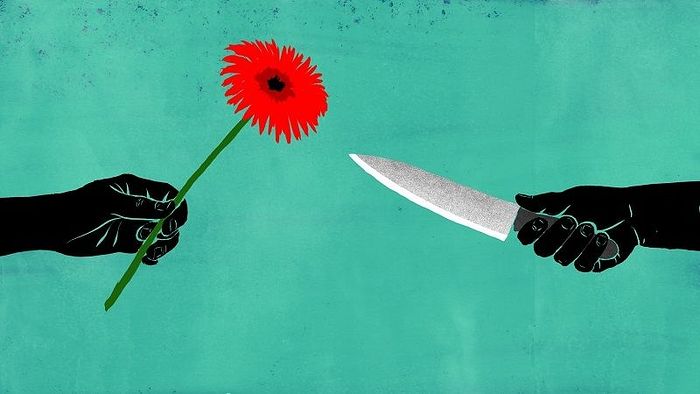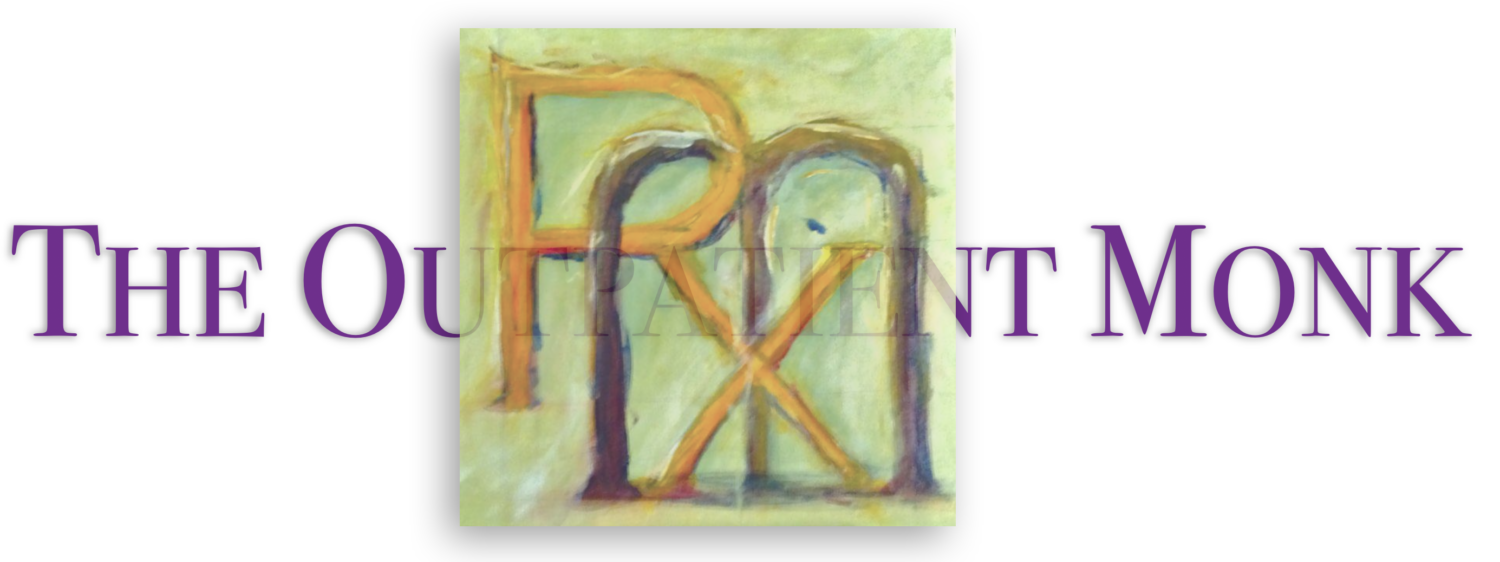Last updated on March 22, 2025
 Have you noticed the uptick in the broad use of the words empath, empathy, empathetic over the past several years? Honestly, in a lot of ways, it feels as if the recent rediscovery of the word allows one to hint at being psychic …ish… without sounding all too irrational, metaphysical, or pseudo-sciencey. Calling one’s self empathic evokes something much closer to a Myers-Briggs personality type than a super-power, but still carries with it an extra air of authority. Does it not? It certainly seems like a more interesting, if not a more powerful claim than merely being a sympathetic person. I am not sure how I would begin to count the number of acquaintances I have online who have suddenly announced to the world that they are an empath, almost always using the noun form, because who cares if I post something that hints I am sympathetic…that just seems menial if not somehow snobby and insensitive.
Have you noticed the uptick in the broad use of the words empath, empathy, empathetic over the past several years? Honestly, in a lot of ways, it feels as if the recent rediscovery of the word allows one to hint at being psychic …ish… without sounding all too irrational, metaphysical, or pseudo-sciencey. Calling one’s self empathic evokes something much closer to a Myers-Briggs personality type than a super-power, but still carries with it an extra air of authority. Does it not? It certainly seems like a more interesting, if not a more powerful claim than merely being a sympathetic person. I am not sure how I would begin to count the number of acquaintances I have online who have suddenly announced to the world that they are an empath, almost always using the noun form, because who cares if I post something that hints I am sympathetic…that just seems menial if not somehow snobby and insensitive.
The word empathetic itself connotes sharing an other’s feelings as if they were your own, being like-minded, or even taking on another’s feelings and experiencing them personally. It is sympathy 2.0 on steroids. Right? And if you do it all the time, then, well, you are kinda special.
I certainly see the appeal, and I’d be lying if I didn’t admit to personally reading through more than one list about “self-care tips for the empath,” with hopes for some great personal insight might inform why my specialness makes the world just so burdensome to me. (And before you accuse me of not being empathetic to empaths thus far, not, I am just not being very gentle. That is different). I just find myself wondering why all this empathy talk has managed to invent a whole new form of entitlement or even narcissism. And yes, I am speaking for myself a little here… The question I am left with is, when we have tweaked something so important beyond recognition, what do we do about it?
As a rule, I notice I’m much more excited to announce, to whoever is listening, that I am a particular noun, an “empath,” rather than bothering to make the case that I happen to qualify for certain adjectives. “I can be a pretty sympathetic person.” Whoa. Icky. In some ways, the less bold claim can sound even more condescending in the right (or wrong) moment than the possession of a unique set of abilities. So by doing something like identifying myself to others as an empath, I end up cashing in on its elevated sexiness as a word, whether I do it intentionally or not.
The added value we attribute to being empathetic means we value that more profound sense of rapport, like-mindedness, intuitive resonance. And this makes sense to me. Relating more profoundly is better than not relating at all. If the question before us was somehow. “ where should we aspire to fall on a spectrum between being a sociopath and being an empath?” then I think we rightly say that we should want to lean towards empathy. And that is what we mean when we speak of empathy in a clinical psychological sense.
But when it comes to the art of living and the hard work of love, words like empathy, sympathy, telepathy, antipathy, apathy may all be nouns but they carry with them a sense of action. They are very very verbish nouns. They are nouns that tell you what kind of relationship is happening. Having apathy implies minimal relationship, but both antipathy and empathy imply much more. In this sense, sympathy falls not mere on a spectrum but is talking about a particular kind of relationship between persons, and usually has a voluntary aspect to it. While it has a lot to do with character and formation ( though it certainly isn’t touted as a superpower) exercising sympathy also seems to evoke the use of the will. Being sympathetic is something we do, or at least cultivate, on purpose. There is a voluntary aspect to it. It is not magic. It is not a trait. It’s hard work. But it might also be the kind of hard work that keeps people from going to war, reaching for a gun, or just trashing someone in the comments section. These are not at all unrelated.
By now I hope you are asking what my problem is with empaths. Nothing. What I am calling to question for myself as well as for others is the subtle ways that I may have slipped into a habit of talking about ourselves in essential ways rather than contingent. In other words, we speak about ourselves in ways that can’t be helped because of who we are. In that framework, we are naturally entitled to a certain amount of deference rather than being asked to do the hard work of love and take on certain universal virtues to be a better person for our community and for our neighbors.
There are both excellent critiques and petty abuses that engage the snowflake metaphor. Frankly, I am tired of them all. But I think my friend Izzi kinda nailed it this week when she stopped and kinda played the metaphor out a little. Paraphrasing heavily she said something to the effect of, “Yeah, we get it, you are a beautiful individual snowflake. There may never be another snowflake quite like you. That is fine. Snowflakes don’t have to be exactly just like each other to work. But In fact, snowflakes, as a rule, aren’t generally found in isolation, are they? They don’t last long if found on their own. We call that snow.” So-called snowflakes occur in similar circumstances and end up really unique while they travel until they attach to each other. Then they are quickly and readily shaped by the snowflake next to them as well as their changing environment. Snowflakes, as a rule, adjust and connect. The snowflakes that attach and accommodate have the best chance of lasting very long at all. We call that snow. And anyone that has had to shovel the stuff, knows that snowflakes when bound and changed by each other, are anything but easily moved.
Izzi kinda nailed it this week when she stopped and kinda played the metaphor out a little. Paraphrasing heavily she said something to the effect of, “Yeah, we get it, you are a beautiful individual snowflake. There may never be another snowflake quite like you. That is fine. Snowflakes don’t have to be exactly just like each other to work. But In fact, snowflakes, as a rule, aren’t generally found in isolation, are they? They don’t last long if found on their own. We call that snow.” So-called snowflakes occur in similar circumstances and end up really unique while they travel until they attach to each other. Then they are quickly and readily shaped by the snowflake next to them as well as their changing environment. Snowflakes, as a rule, adjust and connect. The snowflakes that attach and accommodate have the best chance of lasting very long at all. We call that snow. And anyone that has had to shovel the stuff, knows that snowflakes when bound and changed by each other, are anything but easily moved.
So what I am giving up for lent, isn’t some recognition of my own giftedness, or unique needs. I am just giving up the sense that my own self-understanding, whatever it may be, never exempts me from the hard work of love that comes with the reality that I am a human that lives among a lot of people I will never completely understand or relate to. No matter how much of an empath any person ever claims to be, we will never share the feelings, and actually, do not aim or aspire to share the sentiments of a lot of people with whom I vehemently disagree.
The fact that we are deeply invested in each other tells me there is little that empathy can offer us to forge a way ahead as good citizens and good neighbors who learn how to love.
Maybe what we should be aspiring to in this time and this place, is the far less glamorous challenge to practice and cultivate sympathy for others, especially for people we don’t, and perhaps should never entirely, relate to. Maybe we need kindness over resonance. If we don’t, if we only work with those with whom we understand, with whom we empathize, we are surely on a path to ceaseless war.
In the Gospel of Matthew, Jesus teaches:
“You have heard that it was said, ‘Love your neighbor and hate your enemy.’ But I tell you, love your enemies and pray for those who persecute you, that you may be children of your Father in heaven. He causes his sun to rise on the evil and the good, and sends rain on the righteous and the unrighteous. If you love those who love you, what reward will you get? Are not even the tax collectors doing that? And if you greet only your own people, what are you doing more than others?
So I am giving up being an empath for lent and instead I am going to have to listen, understand, be kind, and if all else fails, pray. It is funny how little help being a self-proclaimed empath can be when it comes to dealing with “enemies.” We only seem to feel the awfulness that our enemies trigger in us. That is fair. Those feelings are legit, but Jesus still calls us to transcend our group of like-minded individuals with whom we are in sync and to innovate what it means to love others by focussing specifically on those most difficult to love.
Today, this month, in Lent, let it be enough to try to walk alongside someone. For a moment let’s not make to much about being able to walk in their shoes. Just walk a path parallel to theirs. Ask yourself what it means to love someone whose path with never really intersect with yours. Or if you can’t love them, pray for them, hand them over to God.
The skills we need are not just to learn to understand each other but to learn to love what we may never be able to understand.
That is just one small piece of the hard work of love.


